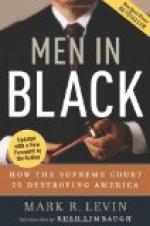A witness on the stand appears at his worst. If any one from real life were suddenly thrust unprepared and unlearned in theatrical art upon a stage the incongruity of the situation would be appalling. Yet the witness is thrown into new and strange surroundings. It is a portion of the reality of life shown vividly against a conventionalized background. The judge and jury in a vague manner understand this. The lawyer producing the witness feels this and elicits the testimony in a soothing manner.
The objects of cross-examination are as follows. The first is to prove that the story of the witness is not true, and the other is to bring out something new. The opposing counsel often forgets the purpose of his cross-examination and by attempting to bully and frighten the witness, usually either by sarcasm or a doubting manner, accomplishes very little. Not one cross-examination out of five hundred amounts to anything. The judge has heard many and he has little hope of their being of much interest. The jury make so much allowance for the witness being frightened on the stand and for the fact that she is in the hands of a clever lawyer, that they are not much impressed even if she contradicts herself or is proved mistaken. At best it is only a mistake, not a deliberate lie. The lawyer thinks he owes a moral obligation to his client and to himself to cross-examine. He is compelled to go on. There is a musty tradition of the law that a trial without cross-examination is not a proper trial. It is a legal fetish and one of the things that is done. The judge expects it, the jury expect it, the client expects it and the public.
The client pays his money and he ought not to be disappointed. If it were omitted altogether, the judge and jury might not feel the loss so bitterly. Perhaps they might prefer it and the question for the lawyer is whether it is better to satisfy the client or the jury. In this quandary the lawyer may forget that the main point is to win the battle. When the case is lost the client does not care at all how brilliantly the lawyer looked, acted, or fought.
If the lawyer reasons he will say:
“If the object of my cross-examination is to show that the witness is not telling the truth, have I much chance of getting him to confess the fact?” The witness knows something about perjury. He is afraid and he has heard about those pitfalls of cross-examination. Does the lawyer remember his own hopeful son and how only yesterday he could not get him to admit stealing the cake even with the prospect of immediately impending punishment? Only that little rim of chocolate about the ears was the proof. Even the deaf little child, who is not as intelligent as the witness, will not admit that he was untruthful. But still he goes on cross-examining.
If the witness is finally shown a paper which he or she signed when the investigator of the railroad came to see her, and in which she said she was sitting on the sixth seat, there is not such a great deal to be proud of.




